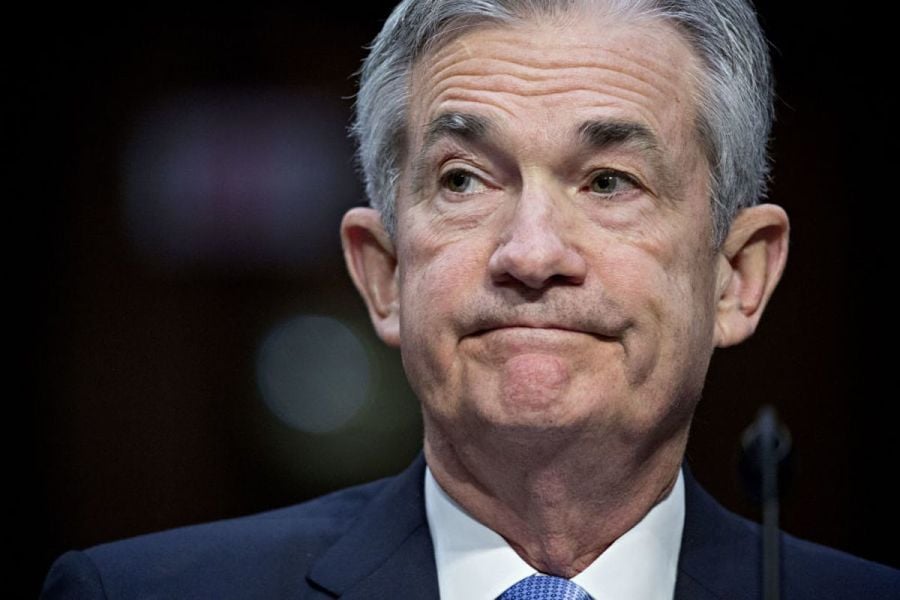

Federal Reserve Chair Jerome Powell said the US central bank must be patient and wait for evidence that inflation continues to cool, doubling down on the need to keep borrowing costs elevated for longer.
The Fed chief said recent inflation figures indicate it will likely take more time than previously thought to attain the confidence needed to lower interest rates, echoing comments he made earlier this month.
“We did not expect this to be a smooth road, but these were higher than I think anybody expected,” Powell said Tuesday, referring to the lack of inflation progress in the first quarter. “What that has told us is that we’ll need to be patient and let restrictive policy do its work.”
“It looks like it will take longer for us to become confident that inflation is coming down to 2% over time,” he added.
During the event hosted by the Foreign Bankers’ Association in Amsterdam, Powell described current policy as restrictive by “many, many measures” but noted time will tell whether rates are sufficiently high to bring inflation back to the central bank’s 2% goal. The Fed chief reiterated it wasn’t likely that the central bank’s next move will be a hike.
“We think that it’s probably a matter of just staying at that stance for longer,” Powell said.
US central bankers, including Powell, have expressed disappointment at the lack of inflation progress in the first quarter. Earlier this month, policymakers kept their benchmark policy rate unchanged at a 23-year high, a level Powell said he was prepared to maintain “for as long as appropriate.”
During the moderated discussion between Powell and European Central Bank Governing Council member Klaas Knot, Powell said that he expects inflation will move lower on a monthly basis. However, price figures in the first quarter have tempered his confidence.
“Today was a big exercise in reiterating the previous stance that they don’t expect to be hiking rates and if they need to stay at this level for longer, they will,” said Luke Tilley, chief economist at Wilmington Trust.
Producer Prices
The producer price index, a measure of wholesale prices, topped all economists’ forecasts in April, a government report showed Tuesday. That said, several components from the report that feed into the calculation of the Fed’s preferred inflation gauge — the personal consumption expenditures price index — were more mixed.
Powell described Tuesday’s report as “mixed.” The consumer price index for April will be released Wednesday, and economists surveyed by Bloomberg estimate prices rose a firm 3.4% from a year earlier.
The US economy continues to show resilience even with the Fed settling in with higher-for-longer rates. Non-farm payrolls have averaged 246,000 a month so far this year, and unemployment remains low. The April jobs report, however, did show some signs of moderation, with a slower pace of job growth and an unexpected tick up in unemployment.
Powell described the labor market as “very strong” with signs of gradual cooling and re-balancing, in part driven by an increase in labor supply from immigration as well as an easing in demand. He added the labor market is about as tight as it was before the pandemic in 2019.
European Outlook
ECB officials including President Christine Lagarde have signaled they’ll begin to lower borrowing costs at their June meeting, a sentiment Knot echoed Tuesday. What happens after is less clear and more controversial.
Some European policymakers favor a series of quick rate cuts to reduce the burden on the euro-area economy, while others call for caution, arguing with persistent risks to consumer prices. Though ECB officials insist on being independent from the Fed, there seems to be some disagreement on how much the ECB’s monetary policy can diverge from that of its US counterpart.

The looming threat of federal funding cuts to state and local governments has lawmakers weighing a levy that was phased out in 1981.

The fintech firms' new tools and integrations address pain points in overseeing investment lineups, account monitoring, and more.

Canadian stocks are on a roll in 2025 as the country prepares to name a new Prime Minister.

Carson is expanding one of its relationships in Florida while Lido Advisors adds an $870 million practice in Silicon Valley.

The approval of the pay proposal, which handsomely compensates its CEO and president, bolsters claims that big payouts are a must in the war to retain leadership.
RIAs face rising regulatory pressure in 2025. Forward-looking firms are responding with embedded technology, not more paperwork.
As inheritances are set to reshape client portfolios and next-gen heirs demand digital-first experiences, firms are retooling their wealth tech stacks and succession models in real time.
